Bitter Moon Saga Read online
Page 10
He was shocked anyway—gate detail this time of year was usually an excuse to get drunk and play cards. Otherwise, why else throw away a perfectly good city-state militiaman on a job that would see no action? The boredom was often enough to send the men begging for mail duty as it was. Since things in Clough had become strange and unfathomable, there had been less and less need for even that. They hadn’t had a traveler come down from Clough through Hammer Pass after late summer in nearly three years. In fact, there were rumors that the trail was cursed, because every year families came down the hill in the late spring, asking about kin and friends who had left in early fall, and no one had seen nor heard a single whisper of them. Jerin was shocked enough to see the travelers that he forgot to ask them their names or their business on this gods-sodden, stinking, late-fall night.
The leader of the troupe didn’t give him a chance to speak anyway. “Someplace warm,” he gasped. “The little girl… she needs warmth… and to be dry…. We can heal her, if we can get her warm and dry.”
“Oh gods, she’s burning up!” Jerin murmured, catching the weary panic. “Here, we’ve got a bunk room that’s warm. You can lay her there. I’ve got some juice and some water.” He hustled them into the bunkhouse, a warm, log-walled room with thick and mismatched rugs strewn on the floor and ten double rows of bunk beds for the spring, when the guards slept in shifts. There they stripped Yarri down to her undershift and wrapped her in blanket after blanket, then trickled some sweet juice into her mouth until she swallowed and swallowed again.
When she was situated on a couch nearest the fire, Jerin turned toward the obviously exhausted leader, who had helped the older boy with the white hair sit down at Yarri’s feet and given him some mulled cider to drink, and asked the naked question: “What in the three hells are you people doing, coming off the Hammer this time of year?”
“I….” TORRANT walked forward and exchanged glances with Aldam over Yarri’s shivering body on the divan. Nobody came into Clough with stories of mercy for the Goddess’s children. “We’re….” He looked at Yarri, weak with fever, terrified, alone, and at Aldam, so blindly tired he couldn’t see past the mug of cider. He was all they had. “We’re kin of the Moons of Eiran—you know them?” he asked hesitantly, and Jerin sucked in a breath.
“Lane Moon owns the most prosperous warehouse in the city!” he said, clearly surprised. “You’re kin?”
“Cousins,” Torrant said, swallowing the lie past a throat suddenly coated in broken glass. He could feel his grip on the snowcat weakening and the illness and exhaustion the change had staved off closing in. He had to make sure Yarri was safe. “I’m Ellyot Moon,” he lied with his eyes closed. “That’s my sister, Yarri.” He opened his eyes, then felt the last of the snowcat’s strength and resolve and magic fall away. His vision was assaulted with the reality of fear, anxiety, and desolation. The room that had seemed bright with heat and safety was now clouded with shadows, with enemies who could close in on them, soldiers who could march in, and rough men who could rip away innocence and…. “Our family is dead,” he said rationally.
Then he collapsed on the floor, unconscious, exhausted, and raging with a killing fever for the second time in less than a month.
Part II: The Haven Moon
It was hard to remember, as he and his companion committed murder and mayhem on the streets of Clough, that it had all started so innocently.
Safety.
He’d wanted to keep them safe.
At first it had been Yarri, then Aldam, and then, in short order, the Moons.
He clutched his memories of the Moons of Eiran close to his heart. They were good reasons. They were his family; they were his safety; they were the ones who had given him and Yarri succor and kindness when they’d been sick strangers in a barracks.
He glanced at Aylan and nodded, and the two of them began their assault on the guard and the rescue of the Goddess boy who was almost too stunned to appreciate the favor.
It was never supposed to come to this.
Ever.
Not Quite Home
ALDAM WAS too exhausted to heal either of them, and it fretted him. He sat dazedly on the couch as young Jerin the guard put a pillow under Torrant’s head. (Ellyot’s head, Aldam thought wretchedly—he’d said his name was Ellyot. It was a hard thing to remember, because it seemed even an ungifted person could sense the wrongness of the dead brother’s name on the live Torrant’s shoulders, like a child’s shirt on a man’s body.)
“He’ll be cold,” Aldam said quietly, trying to make sense, to take charge, to take care of his people. Torrant had done that. Torrant had seen when Aldam was tired and laid him next to Yarri and said, “Sleep.” He had warmed the food most nights, cutting the dried meat to soak in the broth when they had been too tired to chew. He had read the map and told them how to pack the horses and had said when they could rest. Usually he had told them they should rest and watched Aldam and Yarri like a papa hawk to make sure they kept their strength up. Torrant had held them together, even when he’d been a snowcat, padding patrol next to the horses and facing down predators Aldam had barely seen.
“He’ll be cold,” Aldam said again, feeling his eyes blur with unhappy tears. His brother had worn the snowcat’s form until his human self was almost dead with exhaustion—he would miss his warm fur coat.
“I know,” Jerin told him gently, covering the shivering Torrant with blankets snagged from two different beds and rolling him onto blankets from a third. “I’ll take care of him. I’m going to run get a healer, right? And find the Moons—they should know their family….” His voice faltered, and he looked at Aldam, as though seeking some comfort when he hadn’t known there would be a wound. “The Moons visited here every five years or so—I played with Tal and Qir myself, one summer, before the girl was born, when Ellyot here was just a baby. We’ve written since…. Are they really dead?” He blinked, and Aldam didn’t blame him. He’d heard them talking, and it was difficult to believe that that whole happy family had been so easily negated from existence.
“Yes,” Aldam said simply, believing it because Torrant had said it was true. “Yes. T… Ellyot and Yarri are all that’s left.”
“But… the whole Moon holding—there must have been thirty or so workers and such there. Are you all that’s left?”
Aldam squinted unhappy eyes at the guard, and for the first time he realized what had prompted Torrant to lie. So hard to explain, so worrisome, to wonder if the world would hate you for what you didn’t understand yourself. “Yes,” he said again quietly, patting Yarri’s knee for reassurance, “we are all that’s left.”
Jerin swallowed tightly, then nodded once, as though making sure the thought would stick in his head, and without another word, left to find the Eiran Moons and a healer.
Aldam watched him go with worried eyes, then reached under his hood to pull his wizard’s lock in front of his eyes. He squinted at it, cross-eyed, for a moment, deciding after all that it was still colored from his aunt’s quick treatment before he left. It was hard to see anyway, because his own hair was so fine and blond that the silver of the wizard’s lock blended in. But Torrant’s hair… Torrant’s hair was a plain, mud brown. When his silver streak had begun to emerge when he was recovering at the inn, it had glinted with brilliance against that rich, earth-colored hair.
He hated lying, but tucked into his cloak pocket was a packet of the color his aunt had given him to put in Torrant’s hair right before they arrived at Eiran. Torrant had been the snowcat then, and Aldam had forgotten, but now, as Torrant lay shivering with fever, he seemed to Aldam as defenseless as a white rabbit in the desert with the naked streak of silver glinting from under his hood.
With shaking hands and bleary eyes, Aldam wet the dye powder with the water dripping from his cloak and smoothed it along Torrant’s hair, working it into the roots, then using his cloak to wipe up the excess. Torrant’s skin was so hot it seemed almost like an assault to put such cold water on it, b
ut Aldam persevered, hoping he would be strong enough to heal his new brother the next day. When he was done, he spread his mud-sodden cloak next to the fire’s hearth to dry and heaved himself back up to his place by Yarri’s feet. Anye, who had been hiding inside Aldam’s shirt, squirreled out and curled up in the hollow of Yarri’s neck, purring with more comfort than Aldam had in his whole body.
He sat and dozed after that, soaking in the warmth and the sweetness of the cider’s numbing effect on his sore throat and the comfort that was sanctuary after a long flight. He was not prepared for the flurry of people who suddenly descended into the barracks room, making what had felt like a vast, impersonal rack of double-layered sleep cots into a suffocating cage of strangers, and they all wanted to talk to Aldam.
They were all killed? By whom? Did anyone follow you? How did you escape? There were people—so many people. A large, self-important constable; a militia captain; the young, stunned-looking mayor—all of them, all of them, gathering around him, asking questions, until Aldam found himself near weeping. He wanted his mother, or his aunt Stella, or even the sanctuary of his small room down the road from the inn, and Torrant, who needed him, was shivering with fever, and he had always been just as his mother had called him: simple. Too simple for all this noise.
“How did you get down here from the Hammer?” the mayor was asking him again, and he wrapped his arms around himself and murmured, “I don’t know, I don’t know, I don’t know….”
“Stop!” Torrant yelled, standing suddenly in a flurry of weighty blankets and calling the loudness to a halt. “Leave him alone! I’ll answer any questions you want, but leave Aldam alone. He didn’t do anything. He just….” Torrant’s eyes blazed for a moment, not quite snowcat blue, but for what it took to get him to his feet it appeared, to Aldam at least, as though he’d been fighting to channel his gift for the strength to protect his brother. But he was at the end of that strength, and the blaze faded, and suddenly a man stepped forward with a trimmed gray-shot beard and merry blue eyes and a face that said he’d had a good life but a working one. This new man took Torrant around the shoulders and around the waist and, when Torrant’s knees buckled beneath him, he lay him down easily on the mat of blankets he’d sprung up from.
“Leave them alone,” the man said softly. “Let’s get them warm and dry and well, and they can answer our questions then.”
“But, Lane,” the mayor began, “they told the guard at the gate that your family is—”
“Dead,” Lane Moon replied grimly. “Do you think I didn’t hear?” He pulled something out from under his cloak—a rich leather and green-colored felt affair, Aldam noted, but well used. “See this?” He unrolled what looked like an oil painting and showed the odd assembly in the guardsmen’s barracks. It showed… a family. Four boys, two around eleven or twelve—right before their hands and feet began to grow bigger in proportion to every other part of their body—and two around fourteen. The boys were grouped around three adults, one a middle-aged man with a brown beard and brown hair, both shot with silver, who had blue eyes and looked enough like Lane Moon to obviously be his brother. There was a slightly built woman next to him, with fair-brown hair and brown eyes and a shy gentleness that peeked through even the oil on the canvas. Next to the woman was another woman, about the same age, with lush, brown hair. She had a rich, silver streak at her temple and blue-hazel eyes. Held between the two women was a toddler of about three, with sober, brown eyes, a halo of unruly hair the color of yellow-orange flame, and reluctantly wearing a dress—with an oversized pair of breeches peeping out from under the skirt.
“This is my brother and his family, gentleman. That little girl there”—he pointed to Yarri—“is obviously the infant in this portrait.” He pulled back Torrant’s hood, exposing what Aldam knew had been a wound just weeks before. “The boy here has a divot in his ear, just like all the boys in the picture, and although his eyes are closed, he’s a close enough match to the boys in this picture to be Ellyot Moon.”
But, Aldam wanted to say, the boy with the divot in his ear was slender and laughing and not our solid, dependable Torrant. Can’t you see that? Can’t you see it and spare us the deception? Can’t you just take us in and care for us because we are dispossessed?
“Now I don’t know who this boy is, but he’s sick and exhausted, and my nephew just used up all his strength to defend him. Can’t we give him succor and let him be?” Lane Moon looked away then and dashed away tears with the back of his hand. “My brother and his wife—they took in all the Goddess’s children they could. They were good people. I don’t care who this young man is. I’d take him in just for their sakes, just because he’s alone.”
And then Aldam started to weep for real.
Kin
LANE GOT up and held Aldam, calming his racking sobs until he fell asleep. Then he turned to face the rest of the town council, who, as though to acknowledge their bad behavior, had backed up and remained quiet until Aldam lay curled up, his head on the arm of the divan and his arm wrapped around a pillow.
“We’ll wait until they’re all healed before we ask them any more questions,” he said at last, his deep voice quiet. “My wife will be here within the hour—”
“On a night like this?” the mayor broke in, sounding incredulous.
“You tell her she’s too pregnant to care for our family,” Lane returned dryly. The town elders all looked at each other and shook their heads, and Lane nodded, not without some wry humor. “I suspected as much. She’ll be here to care for them, and I’m sure she’ll bring one of the older ones to help. If we could enlist young Jerin, that would be a blessing.”
The constable, who doubled as the captain of the militia, nodded. They all knew it wasn’t as though Jerin had anything to do anyway—nobody was coming down Hammer Pass this time of year.
“Good,” Lane continued, accepting their nods as acquiescence. It was funny—Lane rarely lost his temper (unless he was at home and the kids had left something on the floor, but they knew it was all bluster and ignored him) but few people ever got in his way. He had a reputation as a reasonable man, and the only person who didn’t think he was quiet was his wife, who insisted that he said more sense in a single sentence than she often heard all day. As it was now, there wasn’t a man in the room who could think of any reason that what Lane said wasn’t good advice. Lane was pretty sure some of that had to do with his businesses—but some of it was that he was not entirely a fool.
The quiet was interrupted by a sudden gallop and a whinny from the mountain side of the barracks, and then Jerin skidded into the hall, looking bemused.
“There’s three horses outside,” he said, sounding shocked. “A sweet old mare, a monster of a stallion, and a child’s pony…. They look like they’ve been through three hells, and they seem to know someone here.”
“Horses?” Lane said, as though in a dream. “A stallion….” Suddenly he turned white, and he didn’t have to say what he was thinking. The children could have lied. Lane Moon would never gainsay them, not when they needed tending, but it could have been untrue, all of it. But the horses… if those were Moon horses, then this was, indeed, the last of the Moon family. Lane steadied himself and reached out to pat Torrant’s insensible shoulder. “Good lad,” he said quietly. “If that’s Courtland out there in the dark, then you’ve saved your father’s legacy—and you and your sister will have enough to live on until you’re old and gray.” He looked at Jerin and pulled up a smile. “Lead me to them, young man. I need to see what my brother has left.”
So Lane came out to the horses and went through the saddlebags. He found the oil miniatures of his kind brother and his gentle sister-in-law and others of the rest of the family. He found the wedding necklaces and Yarri’s combs and the coins wrapped up in a bulging coin bag, as well as the few gold coins and the food wallets that Aldam’s mother and aunt had thrown in. He found everything that had been packed but didn’t find the one thing he was looking for.
Holding Yarri’s dowry in his hands, he twisted his face and tried to keep the tears from falling. He had the feeling he could search the horses until he knew what their sires had eaten for breakfast the day they were conceived, but he’d never, ever know the reason for his brother’s death.
BETHEN MOON was a formidable woman. In height she was a scant inch or two smaller than her husband, but even when she wasn’t pregnant, she outweighed him by an amount she only disclosed when she’d tasted a little too much wine. When she was pregnant, she was a vast, ponderous hurricane force of pure female will, and the entire township knew to get out of the way as she lumbered by, swearing at her own ungainly body as she did so. On this night, her second oldest accompanied her, a plump, pretty girl with hair the same color as Yarri’s and eyes that were her mother’s deep brown. At eleven years old, Roes was nearly as tart-tongued as her mother, and that intimidating force of will could be seen in her focused trot at her mother’s side.
“Oy, Bethen!” the constable greeted as she blasted into the barracks in a torrent of sleet and wind, Roes at her side. “Where’s Stanny tonight?” Her oldest boy was not yet fourteen, and he’d already passed his father in height. He was a big-limbed, handsome young man with a slow, sweet smile and a heart that made up in greatness what his tongue lacked in sharpness. The constable wanted to recruit the boy for their annual ball-game scrimmage in the spring, and Bethen had been keeping Stanny firmly out of the recruitment process.
“Stanny’s at home tending his little brother, and he’s not playing for you,” Bethen replied cheerfully, doffing her own felt-and-leather cloak. It was too small for her at this stage of her pregnancy, and her violet cotton dress was dark around her stomach where the rain had, of course, hit first. “Boys get hurt in that game. Stanny doesn’t move fast enough for your kind of play. Now point me to those children, Donis. I understand they’re sick.”

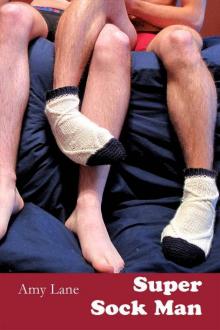 Super Sock Man
Super Sock Man Safe Heart (Dreamspun Desires Book 102)
Safe Heart (Dreamspun Desires Book 102)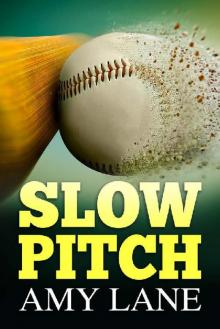 Slow Pitch
Slow Pitch School of Fish
School of Fish Shades of Henry (The Flophouse Book 1)
Shades of Henry (The Flophouse Book 1) Ethan in Gold
Ethan in Gold Hidden Heart
Hidden Heart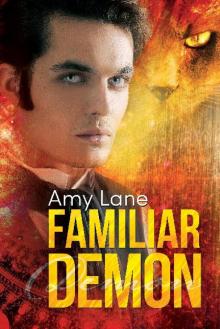 Familiar Demon
Familiar Demon Shortbread and Shadows
Shortbread and Shadows Silent Heart
Silent Heart Shortbread and Shadows (Dreamspun Beyond Book 41)
Shortbread and Shadows (Dreamspun Beyond Book 41)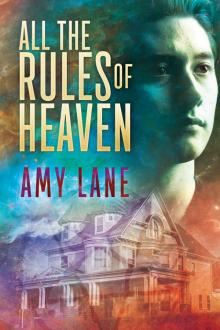 All the Rules of Heaven
All the Rules of Heaven Shades of Henry
Shades of Henry Homebird
Homebird Under the Rushes
Under the Rushes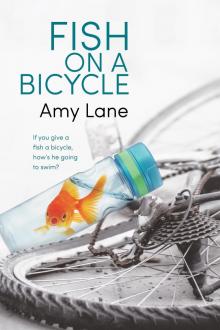 Fish on a Bicycle
Fish on a Bicycle Warm Heart
Warm Heart The Muscle
The Muscle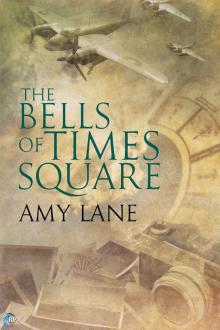 The Bells of Times Square
The Bells of Times Square![Jack&Teague [& Katy] stories 1-5 Read online](http://i1.bookreadfree.com/i/03/19/jackandteague_and_katy_stories_1-5_preview.jpg) Jack&Teague [& Katy] stories 1-5
Jack&Teague [& Katy] stories 1-5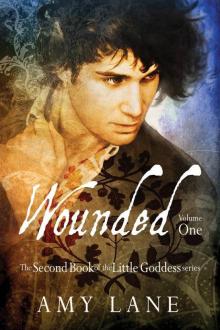 Wounded, Volume 1
Wounded, Volume 1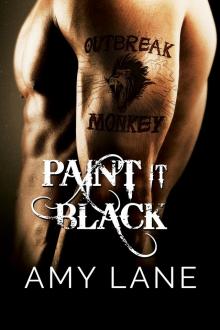 Paint It Black
Paint It Black The Virgin Manny
The Virgin Manny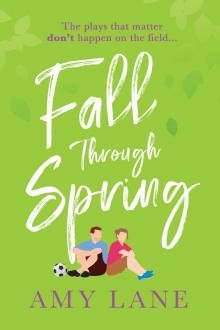 Fall through Spring
Fall through Spring Clear Water
Clear Water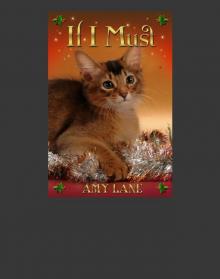 If I Must Lane
If I Must Lane Stand by Your Manny
Stand by Your Manny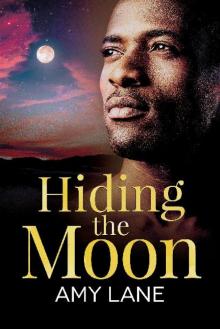 Hiding the Moon
Hiding the Moon Freckles
Freckles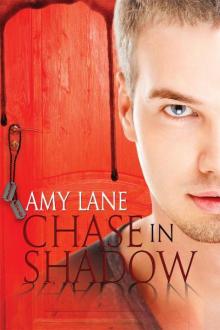 Chase in Shadow
Chase in Shadow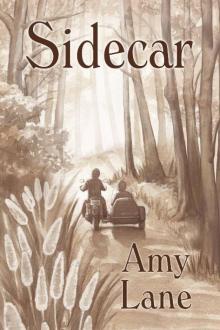 Sidecar
Sidecar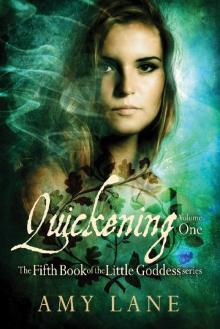 Quickening, Volume 1
Quickening, Volume 1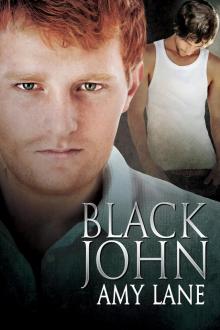 Black John
Black John Bobby Green
Bobby Green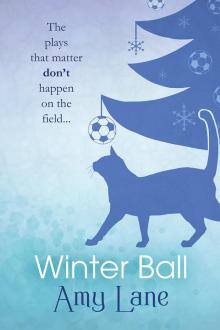 Winter Ball
Winter Ball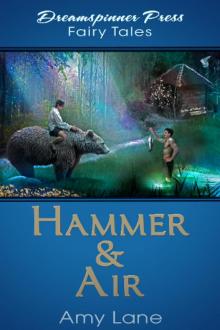 Hammer & Air
Hammer & Air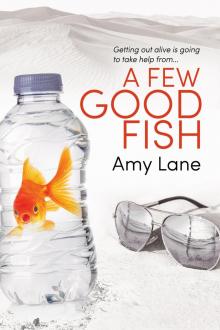 A Few Good Fish
A Few Good Fish Dex in Blue
Dex in Blue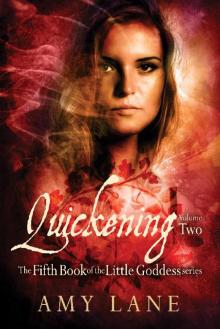 Quickening, Volume 2
Quickening, Volume 2 A Fool and His Manny
A Fool and His Manny Manny Get Your Guy (Dreamspun Desires Book 37)
Manny Get Your Guy (Dreamspun Desires Book 37)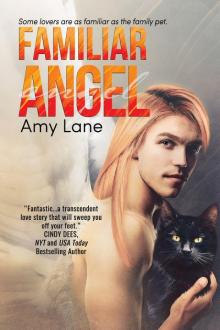 Familiar Angel
Familiar Angel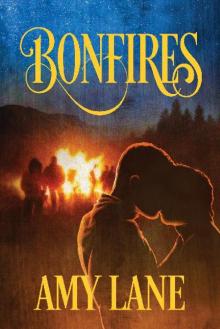 Bonfires
Bonfires The Locker Room
The Locker Room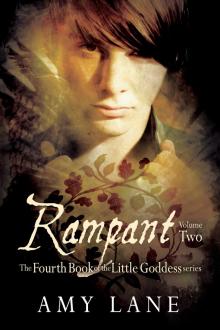 Rampant, Volume 2
Rampant, Volume 2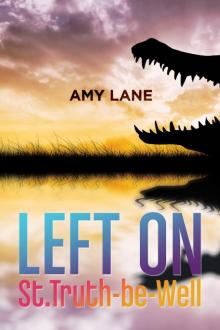 Left on St. Truth-Be-Well
Left on St. Truth-Be-Well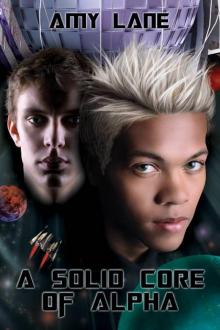 A Solid Core of Alpha
A Solid Core of Alpha Red Fish, Dead Fish
Red Fish, Dead Fish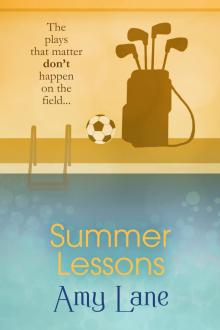 Summer Lessons
Summer Lessons Country Mouse
Country Mouse City Mouse
City Mouse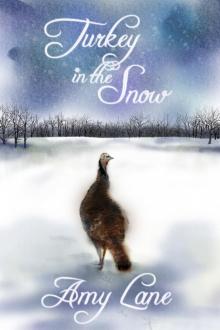 Turkey in the Snow
Turkey in the Snow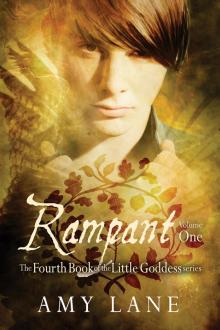 Rampant, Volume 1
Rampant, Volume 1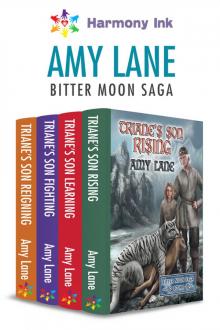 Bitter Moon Saga
Bitter Moon Saga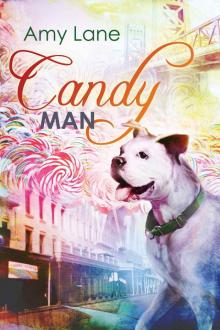 Candy Man
Candy Man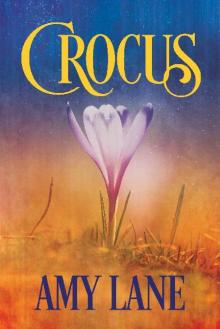 Crocus
Crocus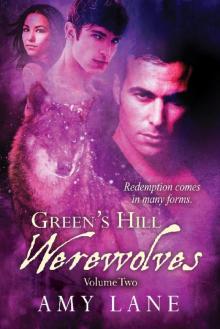 Green's Hill Werewolves, Volume 2
Green's Hill Werewolves, Volume 2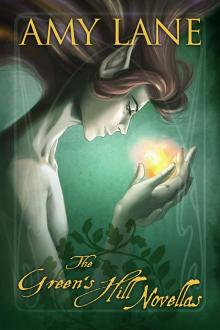 The Green's Hill Novellas
The Green's Hill Novellas